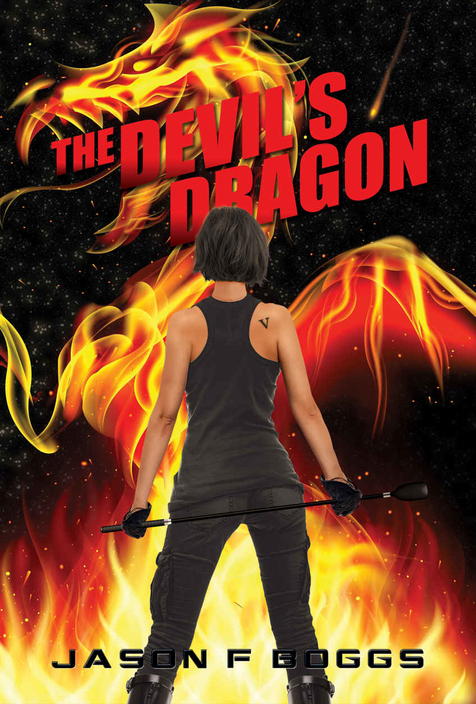
Dystopian near-future novels are all the rage in recent years, and The Devil’s Dragon by Jason Boggs is the exciting first installment of a new series set less than a century in the future. Despite the plethora of books in this freshly popular vein of writing, this novel stands out for a number of reasons, primarily the depth of character development and the comprehensive world-building on display.
The world as we know it has changed at the turn of the 22nd century, and for new recruit Nelson Jones, joining the military means proving that he’s the best, and finding some adventure in the world. He is charismatic and kind, but also well trained and at the top of his class, making him a natural choice for promotion and big things in the future serving the powers that be.
However, that future also involves an alien race called the Aesini, a human-like species who have advanced socially, philosophically, and technologically far beyond the squabbling factions of Earth. After harnessing an ancient cosmic technology that allowed them to travel rapidly across space, and their own ability to master organic forms and manipulate evolutionary trends, the Aesini have their eyes on expansion – but not necessarily war.
Told from two distinct perspectives – one human and one Aesini – this is a well-balanced sci-fi adventure featuring an advanced civilization coming to Earth, cultural misunderstandings, and government cover-ups leading to inevitable violence, and the impossibly complex motives that go into an interplanetary war. Part action-packed space opera and part anthropological exposition of an alien species, this book is dense with information and the pace rarely slows.
For the start of a trilogy, Boggs has designed a fascinating alien species and a strange geopolitical context on Earth that opens up a world for multiple books in a series. The social commentary in this first novel isn’t overbearing, but there are certainly parallels to our real world that keen readers will spy – authoritarian fascist regimes on Earth are not exactly a fantasy in 2019.
Having a balanced narration between the two sides of this war means that readers won’t immediately side with humanity, which is unique in this genre; good and bad are not clearly defined, adding significantly to this story’s appeal. Nelson Jones’ curiosity eventually finds him cast out, a fugitive forced to choose between loyalty to his oaths and loyalty to what he knows is right. The dilemma for the protagonist may be a bit familiar, but the surrounding action and secondary characters carry the story forward and keep readers flipping pages.
Unfortunately, the writing quality falters throughout the book. Grammatical errors, clumsy sentences, unoriginal phrasing, a lack of vivid descriptions, and a dearth of authentic dialogue can be found in many areas. The action and the characters are compelling, but the conversations seem heavy-handed, and the occasional verbosity of the author feels forced. The foundation for a great series is here, but the prose needs a bit more care, polishing and storytelling precision.
While there are a few loose ends and some rough patches in the storytelling, The Devil’s Dragon is a rapid-fire read perfect for those who love post-apocalyptic novels played out through a military lens.
Book Links
STAR RATING
Design
Content
Editing
Get an Editorial Review | Get Amazon Sales & Reviews | Get Edited | Get Beta Readers | Enter the SPR Book Awards | Other Marketing Services























Leave A Comment